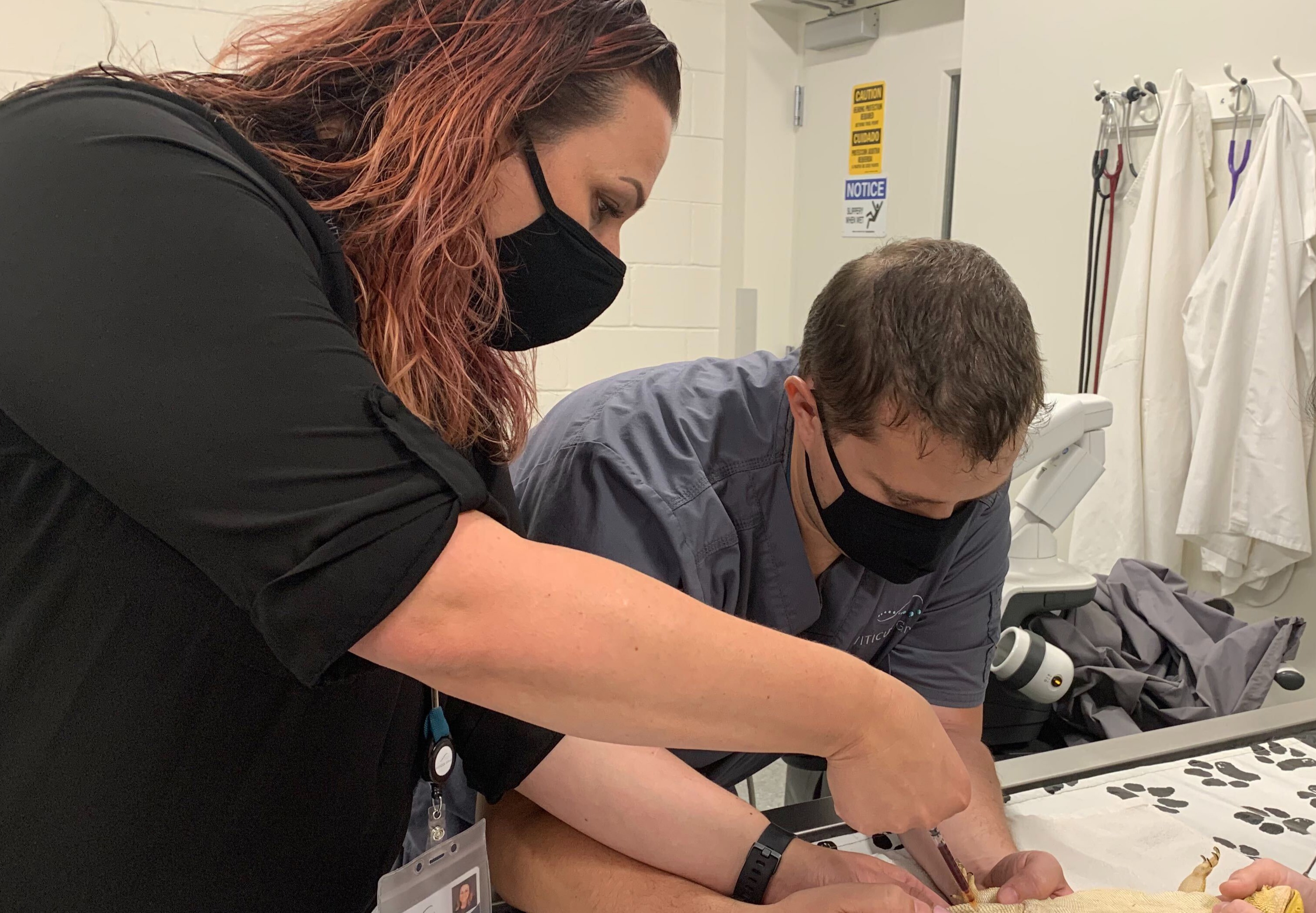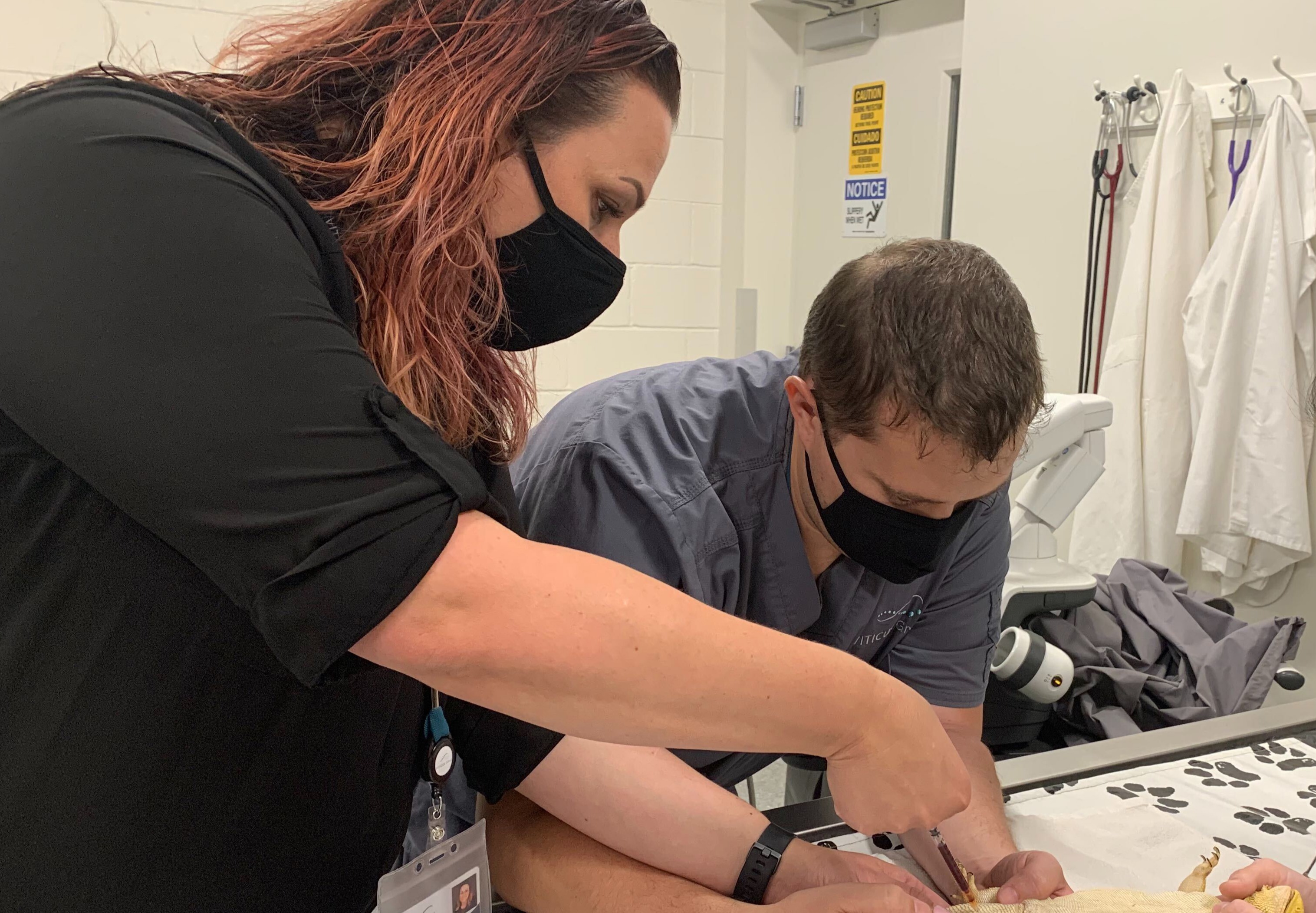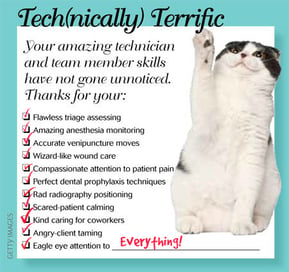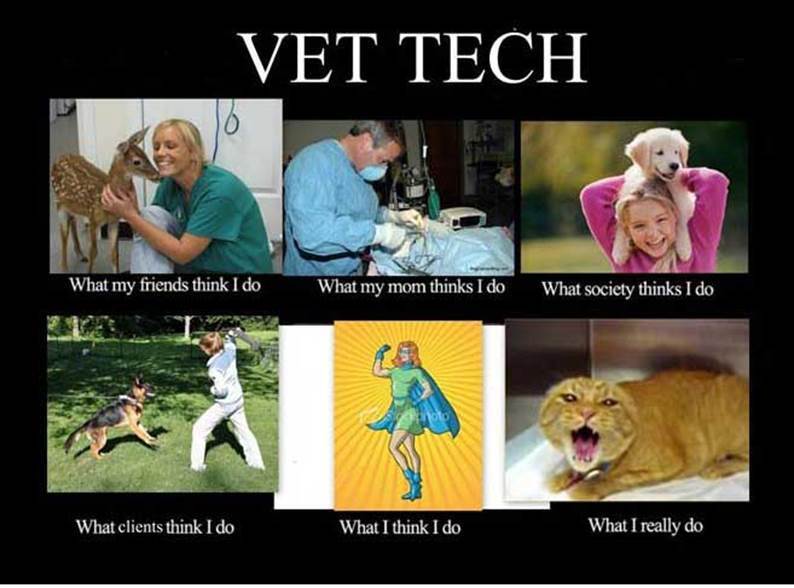What Hands-on Labs Can Do for Veterinary Technicians
Going to hands-on labs and practical CE events as a veterinary technician brings empowerment, pride, and better care.
2 min read
Abby Crimm : October 13, 2020 12:29:39 PM PDT

During National Veterinary Technician Week, we honor all the selfless veterinary technicians and assistants who are often the lifeblood of a clinic as they provide care, make sure things run efficiently, and are key to helping veterinarians improve the quality of life of patients.
Today, the fastest-growing profession in veterinary medicine is veterinary technician. It's come a long way since its start in 1908, and boy, are we grateful for them.

Veterinary technicians wear so many hats and pay close attention to almost every aspect of a clinic to make sure nothing (and no one) falls through the cracks. This is true here at Viticus Group (two of our stellar technicians are pictured above), and the veterinarians we work with light up when they talk about how much they value their veterinary technicians.

In honor of National Veterinary Technician Week, here's a brief history of the profession.
Technicians today advance their careers by getting involved in regional and national organized medicine, specializing in areas they're passionate about, and supporting each other through mental health concerns like compassion fatigue and burnout.

With the support of the veterinary community, veterinary technicians are constantly gaining new heights and reaching their potential as caregivers, team members, and valued professionals.
Thank you, vet techs!
Learn More!
Subscribe to our YouTube channel or check out our Resource Library full of great podcasts, videos, and digital downloads!
Disclaimer
Content may contain advertising and sponsorships. Advertisers and sponsors are responsible for ensuring that material submitted for inclusion is accurate and complies with applicable laws. We are not responsible for the illegality of any error, inaccuracy, or problem in the advertiser’s or sponsor’s materials.
Advertising material and/or opinions are not a reflection on Viticus Group.

Going to hands-on labs and practical CE events as a veterinary technician brings empowerment, pride, and better care.

No veterinarian or veterinary technician wants their patients to be in pain, so we've put together 3 ways to improve pain management in your...

Find yourself considering whether you should switch to a job that isn't as tiring and where you don't get peed on, yet you love helping animals get...